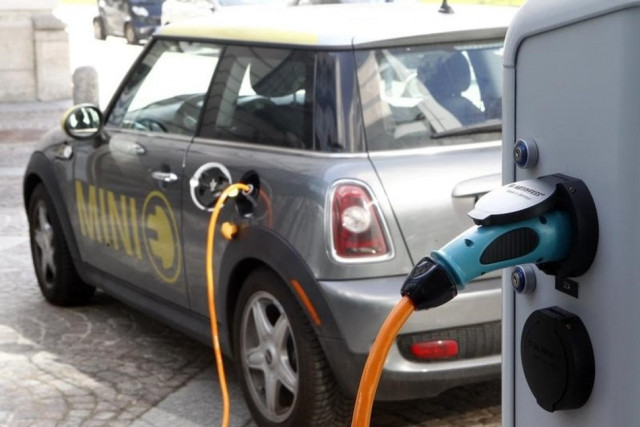BMW to make Mini electric car plant decision by end-Sept
Company deciding between English site and Germany plants

Company deciding between English site and Germany plants. PHOTO: REUTERS
Mini makes around 70% of its approximately 360,000 compact cars at its Oxford plant in southern England but the car industry is concerned about the effect any loss of unfettered access to the EU, its largest export market, could have on plants after Brexit.
BMW is deciding between its English site, a plant in the Netherlands where it has built more of its conventional line-up in recent years, and its Germany plants at Leipzig and Regensburg for the new low-emissions variant.
The firm’s board member for sales told Reuters that the electric Mini investment, likely to be worth tens of millions of pounds, would come in the next three months and the board was currently considering a number of factors including Brexit.
“One of the elements is what is the likelihood of a tax regime and if there’s a tax regime, how would it apply,” Ian Robertson said during an interview at the Goodwood Festival of Speed in southern England.
“If you made the motor in a German plant and you then assembled the car in a British plant, and you took the cars back to the German market, then the duty that you would pay would be reclaimed,” he said, in an example of the options companies are examining to plan for any duties or tariffs.
The automaker is also looking into where the uptake of greener models is strongest and where the best supply chains are, he said. Britain could approve its first major electric battery hub in the next few weeks after officials in central England submitted proposals to ministers in May.
But last month, the car industry issued its strongest warning yet on the need for politicians to strike a transitional Brexit deal after two-year talks to ensure unfettered trade is maintained.
Published in The Express Tribune, July 2nd, 2017.
Like Business on Facebook, follow @TribuneBiz on Twitter to stay informed and join in the conversation.



















COMMENTS
Comments are moderated and generally will be posted if they are on-topic and not abusive.
For more information, please see our Comments FAQ